Digging in During Divorce? Compromise May Be One Question Away…

I am frequently asked by clients when compromise is warranted, especially if the process is contentious. This is a critically important question, as there is often a fine line between staying strong and setting appropriate boundaries and knowing when and how to be flexible.
I hear clients say a lot, “My ex doesn’t deserve…” And that may be true! But I believe there’s a more empowering and insightful way to look at any decision you’re facing, and it comes down to asking yourself one important question: How does my position on this issue impact my divorce goals?
My what?!
Yes, because divorce is one of life’s most significant emotional and financial upheavals, having clear goals will help you make thoughtful, informed decisions through every stage of the process. Start with these questions to create your goals:
- How do you want to feel when you look back on this time?
- How will your actions during this time inspire others?
- How do you want to model dealing with difficult times for your children and others?
- Who are you when you are at your best?
- What is a bigger purpose you can see for yourself?
- What values are important to you and guide your choices?
- As you look ahead to the next chapter, what have you learned about yourself from this experience
- Where do you see yourself in one year, and in three to five years?
(I have a blog post all about divorce goals here, and you can also download my free template to help you get started).
Once you have established your goals, choosing where to compromise and where to stand firm is much easier, as each situation can be measured against those goals. Think about this example:
Your ex wants to change the time you switch kids on Sundays. Your inclination may be to say no just because you don’t want him/her to get their way. But stop and think about your divorce goals. Do they include working to be a heathy coparent? Would this switch work for you if you weren’t afraid of him/her taking a mile if you give an inch? Would it be worth trying to compromise on this issue? Is it possible this choice could also benefit you long-term?
Remember, I am not advocating that you compromise on an issue simply because your ex asked (but if you’re feeling generous, and it’s an easy give, great!). Instead, I hope you’ll consider whether your choice to compromise is also a choice that benefits you, possibly in ways you haven’t yet considered.
Examples include:
1. Reduce Emotional Stress
Compromise can help you mitigate the emotional strain of divorce. By working together to find middle ground, you can alleviate the constant tension and focus on healing. Compromising can also contribute to a more respectful dialogue, which will help maintain greater emotional stability.
2. Faster Resolution
Legal battles are often lengthy and expensive. Court proceedings are time-consuming, and the process often drags on for months or even years. By choosing to compromise, you can expedite the divorce process, saving significant time and financial resources. An amicable settlement allows you both to move forward rather than remaining entangled in prolonged legal disputes.
3. Lower Legal Costs
The financial implications of divorce can be substantial. Legal fees, court costs, and related expenses can quickly add up, particularly in contentious divorces. Compromising reduces the need for prolonged legal intervention, which in turn lowers the overall cost. By reaching an agreement through negotiation or mediation, you can avoid the high costs associated with a lengthy court battle and focus instead on the next phase of your life.
4. Protect Children’s Well-being
It’s always beneficial to reduce kids’ exposure to conflict. When you and your ex can find common ground and create a customized parenting plan that specifically addresses the unique aspects of your kids and family situation, you set the stage for better long-term cooperation. You also model the kind of problem-solving you want your kids to be able to engage in as they grow up.
5. Set A Productive Tone
Sometimes just one small act can positively impact the way you and your ex interact. Don’t be afraid to be the first person to try! By practicing compromise, you and your ex can develop more constructive communication patterns that help smoother interactions moving forward.
6. Maintain Privacy
Public court proceedings can expose personal details and sensitive information to public scrutiny. This lack of privacy can be distressing and uncomfortable. Compromising and settling matters privately through mediation or negotiation keeps personal issues out of the public eye. This confidentiality helps preserve dignity and privacy for both of you and allows you to maintain control over your personal narrative.
7. Build Your Strengths and Confidence
Compromise requires introspection, flexibility, and a willingness to prioritize the bigger picture over individual desires. Successfully navigating these challenging situations will help you rediscover your self-confidence and move toward your goals. Give yourself credit for the wins! By working through the divorce process with an open mind and a collaborative spirit, you will remind yourself that you are capable of negotiation, empathy, and resilience. These skills will be beneficial during the divorce and into the next phase of your life as well.
8. Avoid Negative Impact on Mutual Assets
If you’re dividing shared assets, such as property, savings, and investments, a contentious approach can prolong the dispute, potentially resulting in less favorable outcomes for both of you. Compromise allows for a more creative (and possibly) fairer division of assets, and both of you are more likely to end up with what you need, avoiding the financial impact of a protracted legal battle.
Compromising during divorce isn’t easy, but it’s incredibly valuable, and can feel more attainable when you’ve also created clear divorce goals. Every time you can resolve something without a blow-up you reduce emotional strain, save time and money, and protect your children’s well-being, creating a pathway to a healthier post-divorce life. And every step that gets you one step closer to that goal is absolutely worth the effort.
